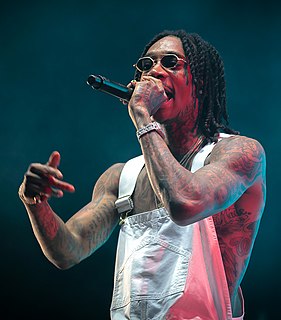A Quote by Immortal Technique
Power always becomes consolidated back into the hands of very few people... whether they be an economic aristocracy, a royalty, a monarchy which is the most concentrated form of oligarchy where it depends on one King who is ordained supposedly by God to rule.
Related Quotes
In the first place, it is obvious that not only is wealth concentrated in our times but an immense power and despotic economic dictatorship is consolidated in the hands of a few, who often are not owners but only the trustees and managing directors of invested funds which they administer according to their own arbitrary will and pleasure. This dictatorship is being most forcibly exercised by those who, since they hold the money and completely control it, control credit also and rule the lending of money.
Just as a royal rule, if not a mere name, must exist by virtue of some great personal superiority in the king, so tyranny, which is the worst of governments, is necessarily the farthest removed from a well-constituted form; oligarchy is little better, for it is a long way from aristocracy, and democracy is the most tolerable of the three.
There are still two forms besides democracy and oligarchy; one of them is universally recognized and included among the four principal forms of government, which are said to be (1) monarchy, (2) oligarchy, (3) democracy, and (4) the so-called aristocracy or government of the best. But there is also a fifth, which retains the generic name of polity or constitutional government.
They that are discontented under monarchy, call it tyranny; and they that are displeased with aristocracy, call it oligarchy: so also, they which find themselves grieved under a democracy, call it anarchy, which signifies the want of government; and yet I think no man believes, that want of government, is any new kind of government.
Culture implies all which gives the mind possession of its own powers, as languages to the critic, telescope to the astronomer. Culture alters the political status of an individual. It raises a rival royalty in a monarchy. 'Tis king against king. It is ever a romance of history in all dynasties--the co-presence of the revolutionary force in intellect. It creates a personal independence which the monarch cannot look down, and to which he must often succumb.
It depends on the consent of the people to decide whether kings or consuls or other magistrates are to be established in authority over them, and if there is legitimate cause, the people can change a kingdom into an aristocracy, or an aristocracy into a democracy, and vice versa, as we read was done in Rome.





























